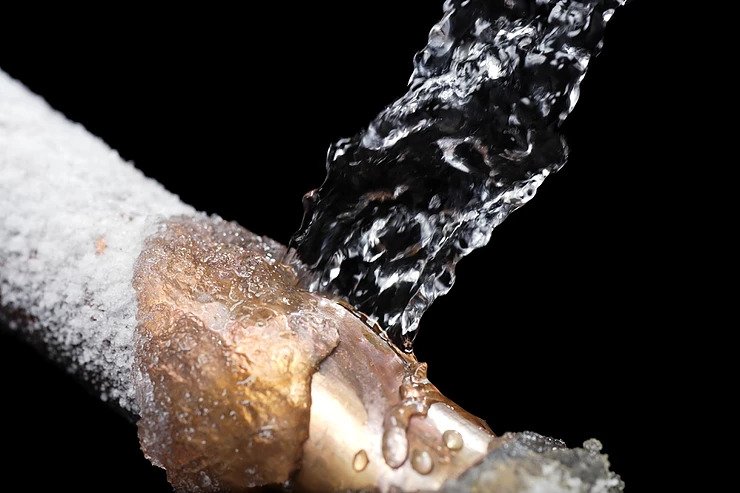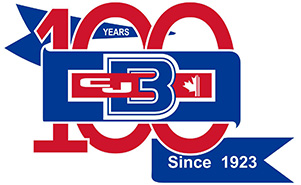Cold temperatures can cause pipes to freeze and frozen pipes can burst. This can be inconvenient, cause costly repairs to home and business owners, and is usually an easily avoidable problem.

The Facts About Frozen Pipes
A Canadian Problem?
Sort of. While the problem is certainly most common in cold climates, it also happens when homes that aren’t originally designed for colder temperatures experience cold for the first time, such as a colder-than-usual winter.
This also happens to us in Ontario, especially if we go away for a few days and temperatures drop way below 0.
Frozen Pipes May Burst
Frozen pipes on their own can prevent water from flowing. This can cause emergencies in your home or business and is doubly as bad when it happens at an essential service building like a hospital or hospice.
Even worse, those pipes can burst because the oxygen in the water expands. After enough expansion, the pipes will break, burst, and can cause significant flooding from any water that thaws.
TIP #1: Keep The Heat On
If you or your tenants are leaving home, such as a trip down south or a vacation to see family over the holidays, make sure you/they keep the heat on. The cold weather doesn’t care about your utility bills! Not to mention the heat bill will never be as high as the potentially thousands of dollars in damage and repairs to burst pipes.
You don’t have to keep the heat set to 70 degrees Fahrenheit like you maybe normally would, but also don’t turn it down too low, especially if you know there are rooms or spots in your home or business that tend to be a few degrees cooler.
TIP #2: Allow Faucet To Drip
If you are afraid a pipe will freeze, you can allow the faucet to drip slightly. Flowing water won’t freeze—think of a river in the middle of winter. Everything around it is frozen but it is not.
In addition to flowing water, allowing a faucet to drip means it will actually relieve pressure in your plumbing system. This is important because if the pipe does freeze, the tension against the pipes that form between the blockage and your faucet is what will cause the pipe to burst.
Trust us, a frozen pipe can be warmed up; a burst pipe will require a professional (or many) to fix.
TIP #3: Keep Interior Doors Open
Think of where your pipes are… In cabinets, mechanical rooms, next to cold walls of your home. Keeping interior doors open allows warm air and cold air to flow more freely, so the cold air won’t pool as easily around the pipes.
TIP #4: Add Extra Insulation
Calling your local plumbing professional to fix burst or frozen pipes will likely be hundreds of dollars. Preventative insulation could cost as little as dollars and cents per piping section.
Insulate any pipes running through areas you worry may lack proper insulation, such as an attic, unfinished basement, or cold room. Keeping those pipes insulated will greatly reduce your risk of frozen pipes.
As always, if you need any heating, ventilation, air conditioning, or plumbing work done, you can contact us via our phone @ (519) 669-3362, our Facebook page, or our Contact Information page!
Thanks for reading and if you have any questions about electrical work, plumbing, heating, or air conditioning, please contact us at:
(519) 669-3362
CJ Brubacher Ltd.
Facebook Page
19 First St E
Elmira, Ontario

